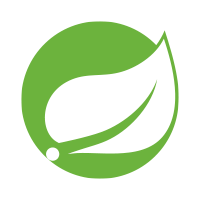
https://spring.io/projects/spring-session-data-mongodb[Spring Session for MongoDB] is part of the Spring Session umbrella.
image:https://jenkins.spring.io/buildStatus/icon?job=spring-session-data-mongodb%2Fmaster&subject=Corn%20(master)[link=https://jenkins.spring.io/view/SpringData/job/spring-session-data-mongodb/] image:https://jenkins.spring.io/buildStatus/icon?job=spring-session-data-mongodb%2F2.1.x&subject=Bean%20(2.1.x)[link=https://jenkins.spring.io/view/SpringData/job/spring-session-data-mongodb/] image:https://jenkins.spring.io/buildStatus/icon?job=spring-session-data-mongodb%2F2.0.x&subject=Apple%20(2.0.x)[link=https://jenkins.spring.io/view/SpringData/job/spring-session-data-mongodb/]
= Spring Session MongoDB
Spring Session MongoDB provides a solution for Spring Session in a MongoDB data store.
- Accessing a session from any environment (i.e. web, messaging infrastructure, etc)
- In a web environment
** Support for clustering in a vendor neutral way
** Pluggable strategy for determining the session id
** Easily keep the HttpSession alive when a WebSocket is active
== Project Status
We go to great lengths to ensure smooth upgrades. We also seek to make your upgrade on major versions of Java can be as smooth as possible.
[IMPORTANT]
- Spring Session for MongoDB 2.2.x runs on Spring Framework 5.2.
- Spring Session for MongoDB 2.1.x runs on Spring Framework 5.1.
Both of these have support for JDK 11.
Spring Session for MongoDB 2.0 runs on Spring Framework 5.0 and is NOT supported on JDK 11 despite
our pipelines testing against it. The extra tests are designed to give you a smooth upgrade path. If you are going into production on
JDK 11, you should be using at least Spring Session for MongoDB 2.1.
IMPORTANT: JDK 13 is Java's latest version and is unstable. We are testing against it to catch issues early on, but don't support it directly on any version of Spring Session for MongoDB.
== Building Spring Session MongoDB
. Run ./mvnw clean package
This will generate the artifact.
You can also import the project into your IDE.
== Making a release
- Create a new release (on the main branch).
% ci/create-release.sh
- With the release tagged, push the tagged version to the release branch.
% git checkout -b release
% git reset --hard
% git push -f origin release
NOTE: You can chain the previous set of commands together using &&.
The pipeline will build and release the "release" branch. It will also build a new a new snapshot and stage it on artifactory.
The pipeline will pick up the next tag and release it. It will also build a new snapshot and stage it on artifactory.
=== Running CI tasks locally
Since the pipeline uses Docker, it's easy to:
- Debug what went wrong on your local machine.
- Test out a a tweak to your
test.shscript before sending it out. - Experiment against a new image before submitting your pull request.
All of these use cases are great reasons to essentially run what Jenkins does on your local machine.
IMPORTANT: To do this you must have Docker installed on your machine.
docker run -it --mount type=bind,source="$(pwd)",target=/spring-session-data-mongodb-github adoptopenjdk/openjdk8:latest /bin/bash
This will launch the Docker image and mount your source code at spring-session-data-mongodb-github.
+
2. cd spring-session-data-mongodb-github
+
Next, run the test.sh script from inside the container:
+
2. PROFILE=none ci/test.sh
Since the container is binding to your source, you can make edits from your IDE and continue to run build jobs.
If you need to test the build.sh script, then do this:
docker run -it --mount type=bind,source="$(pwd)",target=/spring-session-data-mongodb-github --mount type=bind,source="/tmp/spring-session-data-mongodb-artifactory",target=/spring-session-data-mongodb-artifactory adoptopenjdk/openjdk8:latest /bin/bash
This will launch the Docker image and mount your source code at spring-session-data-mongodb-github and the temporary
artifactory output directory at spring-session-data-mongodb-artifactory.
+
Next, run the build.sh script from inside the container:
+
2. ci/build.sh
IMPORTANT: build.sh will attempt to push to Artifactory. If you don't supply credentials, it will fail.
NOTE: Docker containers can eat up disk space fast! From time to time, run docker system prune to clean out old images.
== Code of Conduct This project adheres to the Contributor Covenant link:CODE_OF_CONDUCT.adoc[code of conduct]. By participating, you are expected to uphold this code. Please report unacceptable behavior to [email protected].
= Spring Session Project Site
You can find the documentation, issue management, support, samples, and guides for using Spring Session MongoDB at https://projects.spring.io/spring-session-data-mongodb/
= License
Spring Session is Open Source software released under the https://www.apache.org/licenses/LICENSE-2.0.html[Apache 2.0 license].